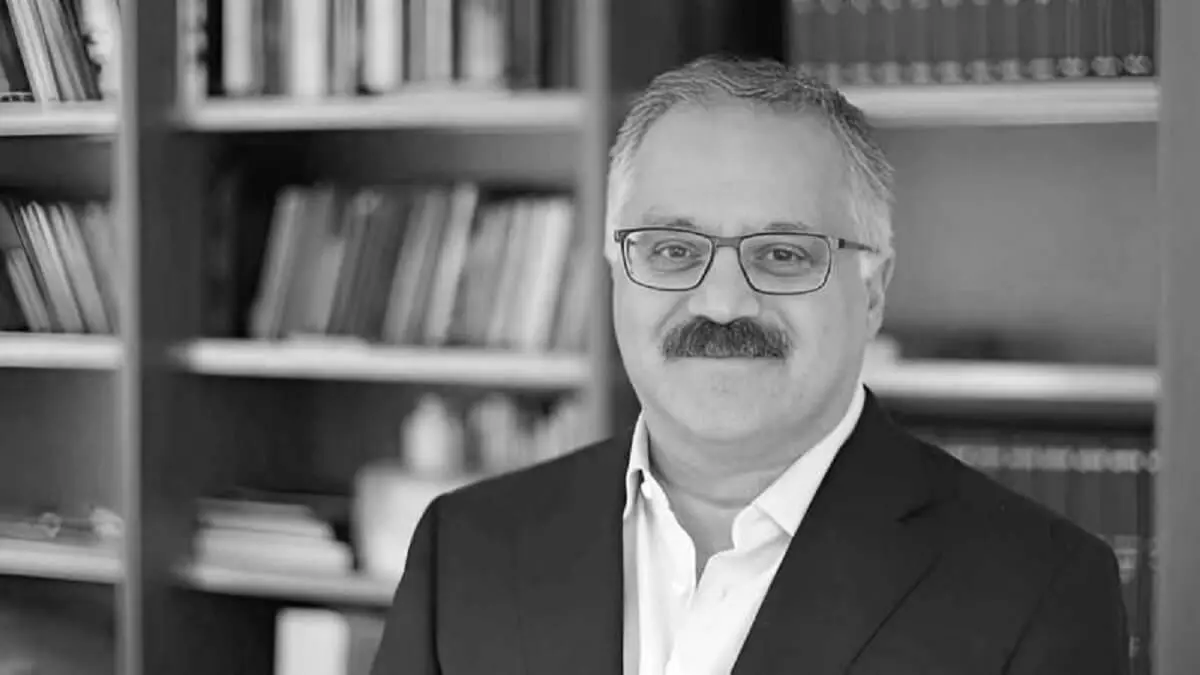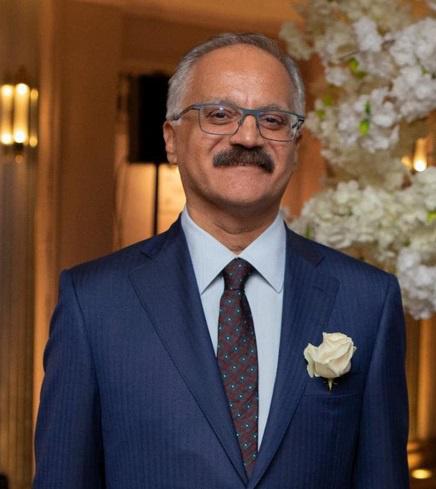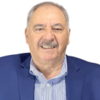More than kin, Haitham El Zobaidi, our anchor and compass

Haitham, our family’s icon, is gone after a long, unyielding battle with a merciless illness. He bore it with the quiet dignity of a believer, steadfast and uncomplaining, never once allowing those around him to glimpse the weight of his suffering. With characteristic grace, he concealed his pain from all but a few trusted friends, determined not to burden or alarm those he loved. Even at his most vulnerable, Haitham sought not sympathy, but to spare others from worry.
I knew Haitham across the span of his life, child, youth, and man. And yet, words falter when trying to encompass the full measure of who he was. Within our family, he was not simply admired; he was revered. A rare presence, the voice of calm and discernment in moments of discord, a quiet force that held us together. His presence at any gathering lent it an aura of composure and wisdom. He was more than kin; he was our compass. In life, he forged our unity; in death, he leaves a silence that memory and prayer alone must now attempt to fill.
Haitham’s generosity was unbounded. He gave instinctively, without pretext or occasion, and never paused to consider whether his giving would be acknowledged. His support extended to friend and stranger alike; in his eyes, all were equally deserving of care. I recall his close friend and colleague, Mr Karam Nama, once capturing his essence perfectly: “Haitham worked with one hand, while the other fed others.” That image, simple yet profound, speaks to the heart of who he was, attuned to others’ needs, generous without calculation, always putting himself second.

teachers and classmates alike with the clarity of his mind, the depth of his understanding, and the calm confidence that accompanied his thought. That early promise only grew, as the gifted child became a distinguished thinker and leader.
One of the things that always struck me was his profound love for Morocco, its people, its heritage, its intellectual life. He spoke of it not as an outsider, but as someone who understood its depth. He admired the openness and richness of Moroccan culture, its enduring place in Arab thought, and its proud yet outward-looking spirit. For him, Morocco offered a model of balance, between rootedness and modernity, tradition and openness.
Even as illness progressed, we stayed in frequent contact. Each time I asked to visit, he would smile and say gently, “Soon, God willing … after the treatment is done.” Always hopeful, always shielding others from the truth of his pain. His heart was vast, his mind luminous, his spirit unbreakable. What kind of man carries such suffering with such dignity? He never let the illness define him. He remained, to the very end, clear-sighted, gracious, composed.
I saw him one final time last October, during a brief window of stability. Ten days that I now treasure. We spoke of life’s milestones, shared deep reflections, and laughed, yes, even laughed. Though weakened, he never once complained. When I urged him to rest, he replied with calm assurance: “I’m under no illusions. I know what I’m facing. But I fight it through work.” True to his word, he continued rising at 5 am, making global calls, reading, writing, thinking.
We spoke at length about the region’s upheavals, the state of Arab culture, and his unshaken belief that he still had more to offer. Work, for him, was a quiet form of resistance. Even in serious conversations, his dry humour never left him. It was the mark of a generous and sincere soul.
I asked him once about his old hobby of stamp collecting, whether the weight of life had made him forget it. He smiled, deeply, almost as if I’d unlocked something precious. “No,” he said, “I haven’t forgotten. It still lives in me.” Then, without a word, he stood and led us through his private archive. Album after album, chronologically arranged, meticulously curated. He paused at several, recounting the stories behind specific stamps as if they were living histories. What he showed us that day was not a collection: it was memory, intellect, curiosity and care made visible.
He also spoke of his admiration for Dr Amer Hassan Ali, the physician he first met in hospital. He had told me the story before, but now he shared it in deeper detail. A story rich with grace and gratitude, one that could, in itself, inspire a novel.
Haitham truly lived the values of dialogue and understanding. He never saw difference as a threat, but as a chance for encounter, for exchange and enrichment. He was no fleeting presence in our lives. He was an imprint, a legacy. Today we mourn him in words, but he lives on in spirit, in our thoughts, in his work, and in the love he gave so freely.
He believed in a journalism that built bridges between East and West, between Arab culture and the world. He sought to create spaces for dialogue, launching multilingual platforms in Arabic, English, Spanish and Turkish, not simply as media outlets, but as repositories of knowledge, windows into the Arab world presented with dignity and depth. For Haitham, representation was not a slogan. It was a responsibility.
He was a pioneer of the digital turn in Arab media. In 2000, long before the internet was part of daily life in the region, he launched Middle East Online (MEO) in both Arabic and English. It was among the first independent Arab digital projects, and it laid the groundwork for a new era of open, globally-minded Arab journalism.
At the heart of this vision stood Al Arab, the newspaper he helped revitalise in partnership with his lifelong friend and colleague, journalist Mohamed El Houni. Together, they crafted a platform grounded in professionalism, clarity and cultural sophistication. Under Haitham’s leadership, Al Arab became one of the first Arab voices abroad to speak with reason, to explain without apology, and to present Arab issues with both passion and poise.
Dr Haitham also lectured widely on the importance of digital transformation in the 21st century at various cultural and media forums. He called for keeping pace with the times, not only technologically, but intellectually and institutionally, believing that those who possess modern tools of expression also hold the power to influence and shape change.
Haitham always thought outside the box. He examined events not only through the lens of the present but with foresight that reached beyond the moment. He anticipated outcomes in unconventional ways, viewing events from angles that few would consider. He brought together advanced tools of analysis, a mix of critical thinking, an engineer’s logic, a physicist’s perspective, a historian’s insight and a deep familiarity with the region’s complex cultural context. He deconstructed complexities with methodical clarity, never settling for the surface, always diving into the depths to seek the true meaning behind events.
And so, in a moment of solemn stillness, where great minds come to rest, the body of Dr Haitham El Zobaidi was laid to rest in his final abode. But he did not leave our memories, nor our hearts. By divine will, an olive tree has grown beside his grave, an unlikely occurrence in that region. It was no random botanical accident, but a symbol impossible to overlook: a lone olive tree in that place, yet its presence was profound. As if it sprouted to deliver a message: here lies a man who lived for peace, who devoted his mind to love, and whose legacy crosses boundaries, languages, and cultures.
There remain in our hearts countless memories, and in our minds dozens of noble acts and moments that no single text can contain. For Haitham was not a passing presence in our lives, he was an imprint, a mark left upon us. We mourn him now with words, but he remains within us, in spirit, in thought, and in everything he gave.
Farewell, Haitham, you who taught us that the truly great never depart, for their legacy endures.
Dr Khairi El Zobaidi is the Editor-in-Chief of the Arab World English Journal.

